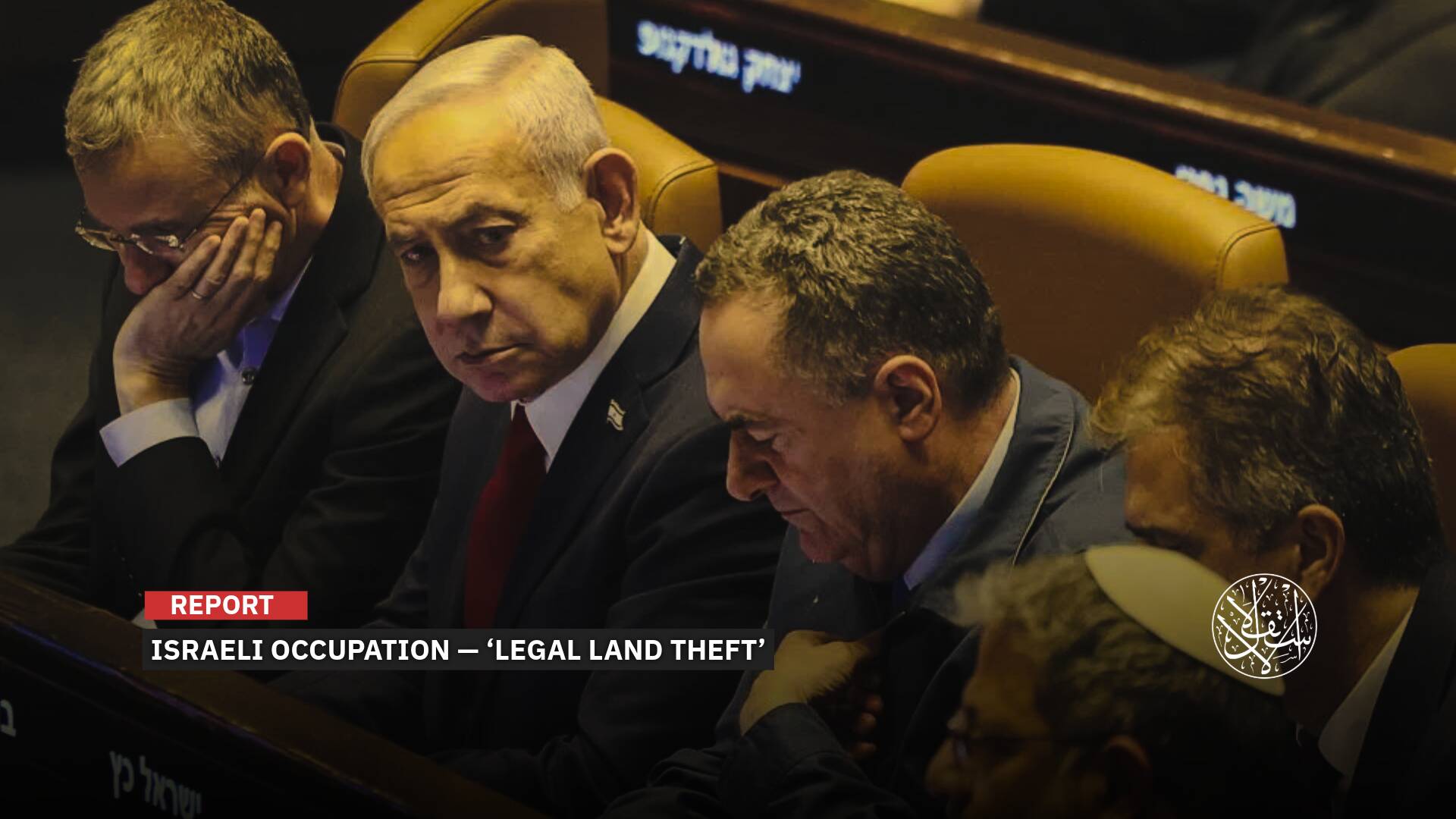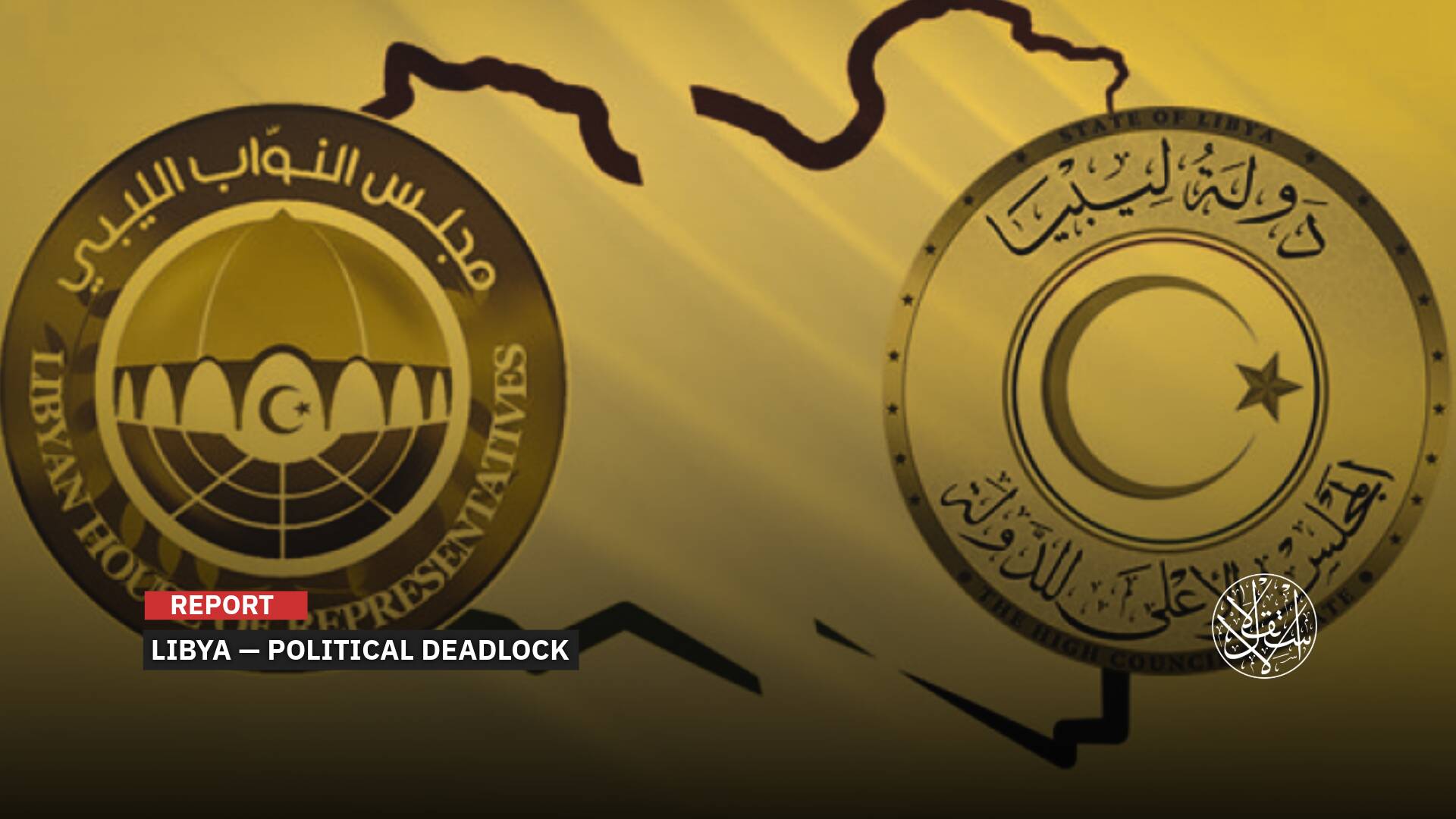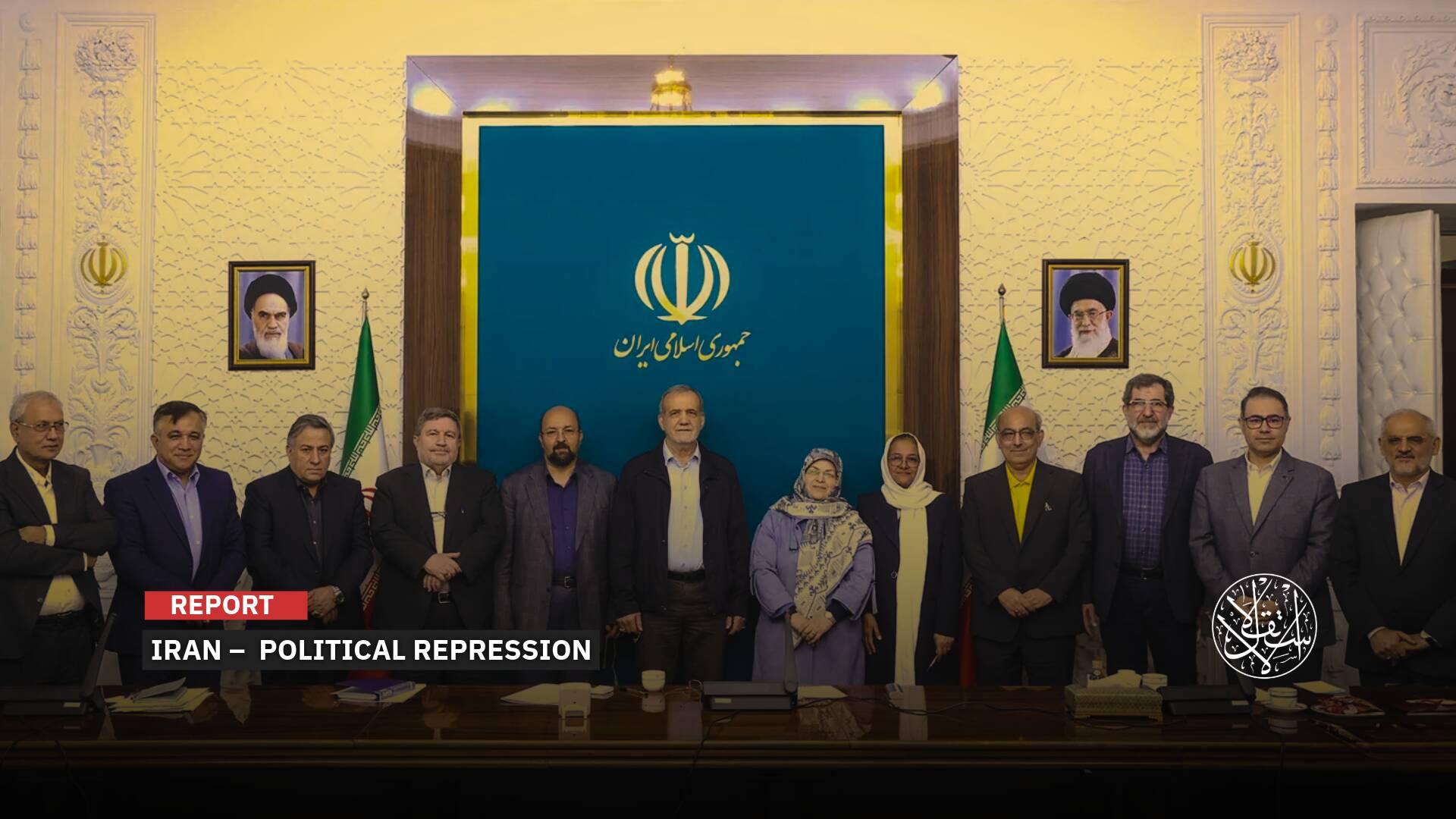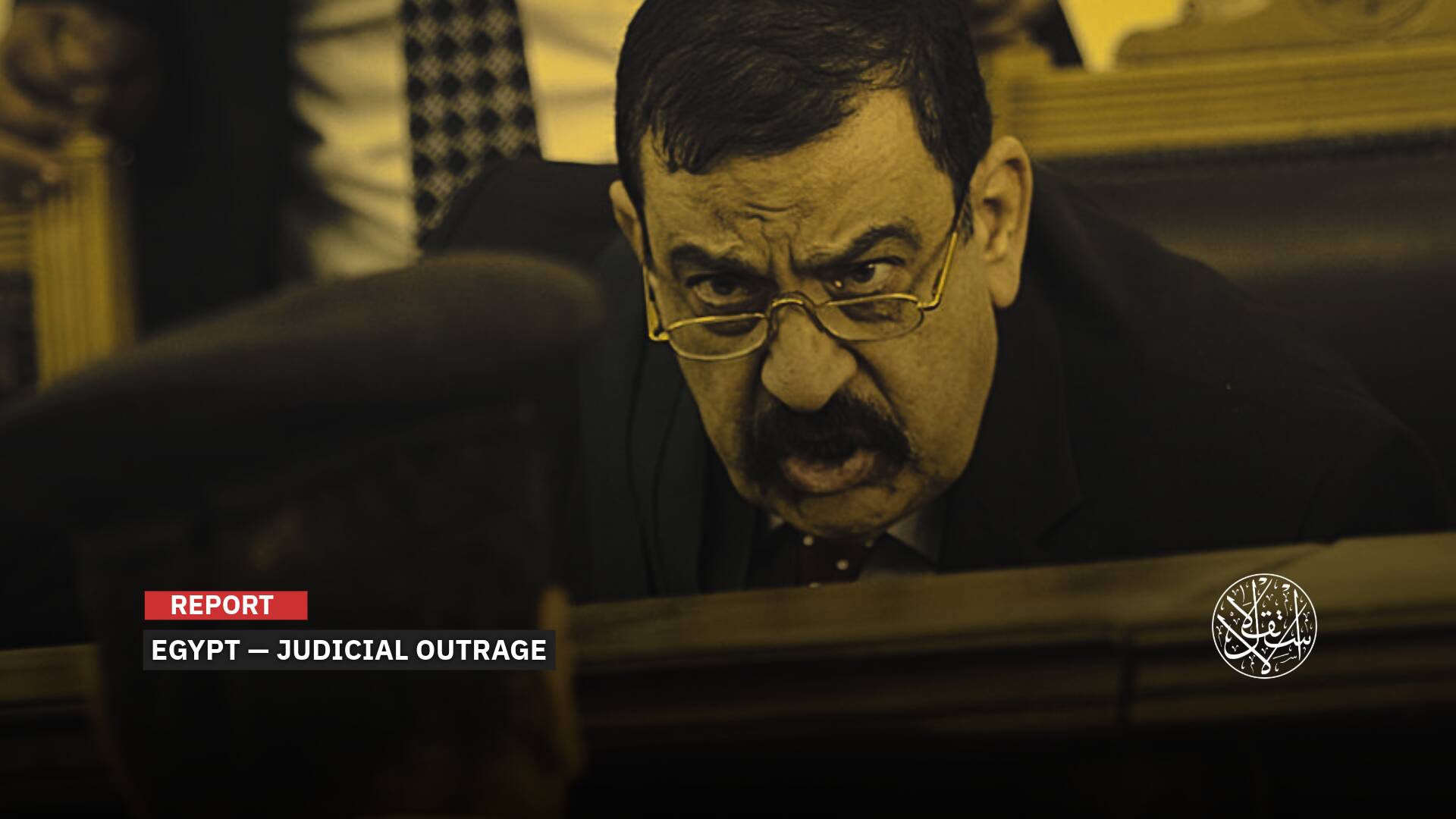Al-Aqsa Storm: This Is How the Palestinian Resistance Exposed the Fragility of the Israeli Fortresses

The Islamic Resistance Movement Hamas carried out an unprecedented qualitative attack inside the Israeli settlements surrounding the besieged Gaza Strip, accompanied by a barrage of rockets.
Palestinian fighters stormed the security border fence, seized Israeli military vehicles and armored vehicles, and captured and killed hundreds.
The Israeli army, which is still living under the shock of the attack, did not reveal the official number of its captured soldiers. However, Israeli Channel 7 reported that estimates indicate that their number is about 100 Israeli prisoners, including officers.
The Israeli Occupation’s security cabinet convened Saturday night, reaching a number of operational decisions aimed at destroying the military and governmental capabilities of Hamas. These include halting electricity and fuel supply and the transfer of goods to the Gaza Strip.
Hamas’ military operation sparked a large number of reactions, while the U.S. administration seemed more shocked than others, as the timing and unprecedented size of the operation changed the dynamics and calculations in the region and beyond, in light of what was well established in minds about the superior military capabilities of “Israel.”
Washington, London, Paris, and a number of Western capitals condemned the Palestinian attack, and Riyadh and Ankara demanded an immediate halt to the escalation between the two sides, while Doha and Kuwait held the Israeli side responsible for what was happening.
“Israel” occupied Gaza for 38 years, after seizing the Strip in the June 1967 war, until it withdrew from the Strip in August 2005, leaving the Strip under Palestinian control.
Since the Israeli army’s withdrawal from the Gaza Strip, several major confrontations have taken place between “Israel” and the Palestinian factions stationed in the Strip, which is home to 2.3 million people.
In 2021, “Israel” and Hamas engaged in an 11-day conflict that killed at least 260 Palestinians and at least a dozen Israelis.
Al-Aqsa Storm
On October 7, 2023, at exactly six in the morning local time in Palestine, Hamas launched a ground invasion of Israeli settlements adjacent to the Gaza Strip (the Gaze Envelope) under air cover from thousands of rockets fired from Gaza toward Tel Aviv and the occupied territories.
Amid the state of panic and shock that gripped the Israelis and the spread of videos and pictures of tanks and armored vehicles belonging to the Israeli army, either burned or under the control of Palestinian resistance, Prime Minister Benjamin Netanyahu declared a state of alert for war, in a military and intelligence shock that is the largest in Israeli history since the October 1973 war.
This shocking and unprecedented scene since the occupation of Palestine in 1948 was sparked by the Commander of al-Qassam Brigades, Mohammed Deif, by announcing — in an audio message — the start of Operation al-Aqsa Storm against “Israel” and launching thousands of rockets toward it.
Ismail Haniyeh, head of Hamas’s political office, praised Gaza fighters’ efforts as heroic and historic in a statement. He said the attack was meant to avenge criminal Zionist aggression against al-Aqsa Mosque in Jerusalem (al-Quds).
He called on Muslims and all the free people of the world to stand in defense of al-Aqsa.
The Palestinian resistance announced the capture of dozens of Israeli soldiers and settlers and the destruction of a number of Israeli tanks and military equipment.
Armed clashes are currently taking place between Palestinian resistance fighters and Israeli soldiers in several locations within the occupied territories, including Be’eri, Sderot, Suva, Kissufim, Kfar Aza, Yad Mordechai, and Ofakim.
On its part, the Israeli Occupation acknowledged the killing of about 659 people, including soldiers and officers, and the wounding of more than 2,156 others, announcing that it had begun evacuating residents of the Gaza envelope area and regaining control in most locations.
The Palestinian resistance operation launched to stop the aggression and violations of the Israeli Occupation inside the occupied Palestinian territories continues for the second day in a row.
In response, the Israeli army announced the launch of Operation Iron Swords, in which it escalated its military aggression against the Gaza Strip and launched hundreds of devastating missile raids that targeted civilian homes under the pretext that they were Hamas targets.
The Palestinian Health Ministry announced in a statement that 370 Palestinians were killed, and 1,990 others were injured with various injuries as a result of the ongoing Israeli aggression on the Gaza Strip.

Israeli Failure
At a time when “Israel” is reeling under the weight of a sudden and heavy-casualty attack launched by Hamas fighters, the war commanders in the Israeli army are facing increasingly difficult questions about how Hamas carried out this attack.
“It looks quite similar to what happened in the 1973 war,” said retired General Giora Eiland, a former head of Israeli National Security Council.
“As we can see, Israel was completely surprised by a very well-coordinated attack,” he told a briefing with reporters.
Channel 12 News military correspondent Nir Dvori stressed that the incident embodies a serious failure of the entire Israeli defense concept.
An army spokesman said there would be discussions on intelligence preparation down the road, but for the moment, the focus was on fighting.
“They’ve been planning this for a long time. Obviously, this is a very coordinated attack, and unfortunately, they were able to surprise us tactically and cause devastating damage,” said former Israeli National Security Adviser Eyal Hulata.
In a precedent, the first of its kind since the 1973 war, the Israeli army declared on October 7 a state of alert for war, which was also confirmed by Netanyahu.
Netanyahu’s rhetoric did not constitute a formal declaration of war, as it needed to be approved by the Israeli Cabinet, which happened on October 8.
Such a declaration would authorize a far-reaching military response that could include a land invasion of Gaza and efforts to topple Hamas, according to Chuck Freilich, a former deputy national security adviser in “Israel.”
A state of war practically means declaring a state of emergency and placing the Israeli Occupation’s logistical capabilities and infrastructure at the disposal of the army, in addition to recruiting large numbers of reserve forces.
The declaration of a state of war comes to prepare Israeli public opinion for the possibility of a large number of Israeli deaths, especially since previous Israeli military estimates expected that 500 soldiers and officers would be killed in any ground operation inside the Gaza Strip.
In addition, it also represents a justification for pushing the United States to provide urgent military aid to give the Israeli army the ability to continue its military attack.
Internal political considerations cannot be ignored, as the declaration aims to unify the Israeli ranks that were torn apart following the outbreak of mass protests against the judicial amendments plan.

Western Condemnations
The al-Aqsa Storm Operation took Israeli officials by surprise, and their reactions ranged from silence that lasted for hours, to hollow stammering from Defense Minister Yoav Gallant, and existential anxiety from Israeli President Isaac Herzog, before the pace of Israeli arrogance rose again.
However, it was not too early for Stephanie Hallett, Charge d’Affaires of the U.S. Embassy in occupied Jerusalem, who was quick to express disgust at the successive images of dead and wounded Israeli civilians.
U.S. President Joe Biden also confirmed in statements to reporters at the White House that “the United States stands with the people of Israel in the face of these terrorist assaults. My administration’s support for Israel’s security is rock solid and unwavering.”
Happening Now: President Biden delivers remarks on the terrorist attacks in Israel. https://t.co/mjb6G66AyI
— The White House (@WhiteHouse) October 7, 2023
French President Emmanuel Macron condemned the attacks and expressed solidarity with Israeli victims and their families.
I strongly condemn the current terrorist attacks against Israel. I express my full solidarity with the victims, their families and loved ones.
— Emmanuel Macron (@EmmanuelMacron) October 7, 2023
The British foreign minister, James Cleverly, condemned the incursion, adding that the UK will always support “Israel’s right to self-defense.”
The UK supports Israel’s right to self-defence.
— James Cleverly���� (@JamesCleverly) October 7, 2023
We completely condemn these terrorist acts against Israel. pic.twitter.com/b1Ym3tnpDh
“It is terrorism in its most despicable form. Israel has the right to defend itself against such heinous attacks,” European Commission President Ursula von der Leyen said in a statement.
Volker Turk, the UN human rights chief, said he was shocked and appalled by the attack and reports of Hamas’ hostage-taking of Israeli citizens and called for an immediate halt to the violence.

Serious Repercussions
As the resistance battle to defend the Palestinian people continues, warnings have mounted that the Israeli occupation army will commit more massacres against the Palestinians, especially those besieged in the Gaza Strip for the 17th year in a row.
Saudi Arabia called for an immediate halt to the escalation between the two sides, the protection of civilians, and restraint with regard to the escalating situation between the Israelis and the Palestinians.
Turkiye denounced the loss of civilian lives in the conflict, expressing its readiness to help reduce the escalation before it spreads to wider areas.
Press Release Regarding the Latest Developments in the Context of Israel-Palestine https://t.co/atG9S6ng7m pic.twitter.com/m6NHRqxV98
— Turkish MFA (@MFATurkiye) October 7, 2023
Kuwait expressed its concern regarding the recent events and escalation in the Gaza Strip and the occupied Palestinian territories, which came as a result of the continued violations and blatant attacks committed by the Israeli occupation authorities against the Palestinian people.
Jordan warned of the serious repercussions of the escalation, especially in light of the Israeli attacks and violations against the Palestinian people, as well as against the Islamic and Christian holy sites in the West Bank and Jerusalem.
Morocco expressed its deep concern over the deteriorating situation and the outbreak of military actions in the Gaza Strip, calling for an immediate cessation of all acts of violence that would undermine the chances of peace in the region.
Qatar held the Israeli Occupation responsible for the ongoing escalation in the Gaza Strip due to its ongoing violations of the rights of the Palestinian people, the latest of which is the repeated raids on al-Aqsa Mosque under the protection of the Israeli police.
In a statement, the Qatari Ministry of Foreign Affairs stressed the need for the international community to act urgently to prevent “Israel” from using recent events as an excuse to ignite a new asymmetric war against civilians in Gaza.
Statement | Qatar Expresses Concern over the Developments in Gaza Strip and Calls for De-escalation#MOFAQatar pic.twitter.com/QtoyaFDnRw
— Ministry of Foreign Affairs - Qatar (@MofaQatar_EN) October 7, 2023
Anyone who has followed what has been happening in the occupied Palestinian territories since the current government in “Israel” took charge late last year will likely not be surprised by what is happening now.
The New York Times published a report earlier this year in which it monitored how the far-right Israeli government was increasing the risk of escalation in the occupied Palestinian territories, in light of the escalation of Israeli settler attacks in the West Bank, and how the new Israeli government has placed settlements at the forefront of its important files.
Before that government completed its first month, things were literally close to the brink of explosion, and the chances of a third Palestinian intifada were rising. As a result, the Biden administration quickly sent Secretary of State Antony Blinken to the region to contain the situation.

On his part, political analyst Jalal Rummaneh said in a statement to Al-Estiklal that Operation al-Aqsa Storm exposes the extent of the dire security and intelligence failure of the Israeli Occupation, stressing that the Israeli army, with all its leadership, is in a state of shock.
He noted that the repeated confrontations between Hamas and the Israeli Occupation show an amazing development in the ability of the Palestinian resistance to develop its military, information, and intelligence capabilities despite the vast difference in material capabilities between the two sides.
He also pointed out that the Palestinian attack is a practical response to international manipulation of the Palestinian cause, especially since there are new plans to liquidate it, in light of talk of a new Arab normalization wave and the Palestinian Authority’s complicity with it.
In his reading of the repercussions of Operation al-Aqsa Storm, Mr. Rummaneh pointed out that the Israeli military response will not be limited to the Gaza Strip only, especially since this is the first time that Hamas has focused on a ground attack by its elite units.
Sources
- Hamas has launched an unprecedented attack against Israel. Here’s what to know
- Condemnation and calls for restraint after Hamas attack on Israel
- Israel's security forces face questions after Hamas attack lays bare intelligence gaps
- Israel ‘at war’ after unprecedented assault by Hamas militants from Gaza
- Amid Spasm of Violence, Israel’s Far-Right Government Raises Risk of Escalation










